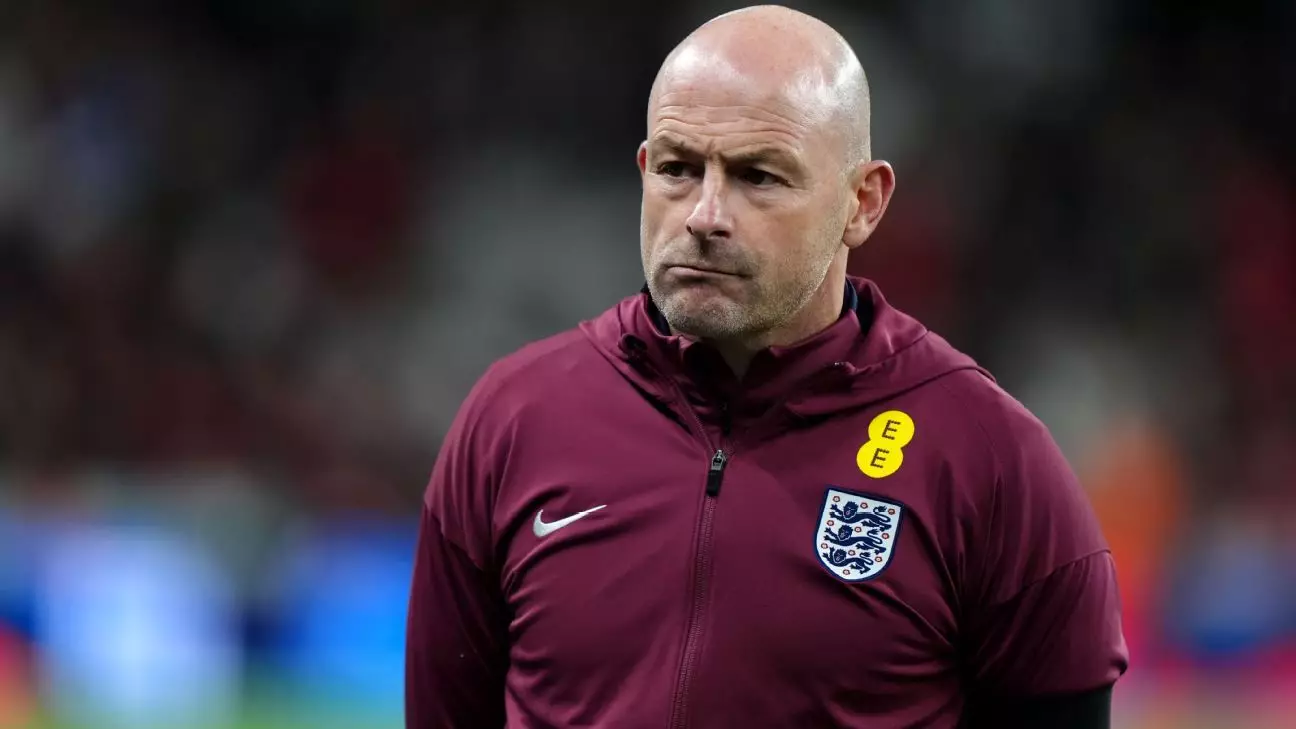The recent UEFA Nations League match where England suffered a surprising 2-1 defeat to Greece has certainly raised eyebrows and sparked conversations about the tactical decisions made by interim manager Lee Carsley. While it was an opportunity to test a team packed with young talent, the outcome revealed more concerns than answers, casting a shadow on Carsley’s prospects for securing the role on a permanent basis.
Carsley’s decision to field a squad featuring the likes of Bukayo Saka, Jude Bellingham, Phil Foden, Cole Palmer, and Anthony Gordon demonstrated a bold approach aimed at showcasing England’s attacking talent. However, the outcome was far from what was expected. Rather than creating an offensive spectacle, the arrangement turned into a disjointed display, highlighting a lack of synergy among the players. It starkly proved that merely having talent does not guarantee success; instead, careful tactical planning and adaptability are crucial.
The strategy appeared ambitious, yet it quickly unraveled as Greece took the initiative. With a beleaguered England struggling to establish any form of rhythm, the visiting side was able to dictate the pace and flow of the game. It became painfully evident that Carsley’s tactics lacked the necessary cohesion to utilize England’s attacking strengths effectively.
An essential aspect of football is the balance between attack and defense. In this match, England found themselves significantly imbalanced. Key midfielders like Declan Rice seemed overwhelmed, constantly tasked with extinguishing the fires created by their offensive colleagues who were caught too far forward. This imbalanced setup negated the potential of attacking players, who were often left isolated.
Despite having a wealth of attacking options, England’s formation lacked clarity. With notable absences in key areas, it was clear that Carsley’s experimental approach did not provide the stability needed in such competitive matches. Bellingham’s ability to craft opportunities was stifled, and Foden, while talented, seemed lost amidst the chaos. This predilection for an ultra-attacking formation had severely eroded England’s structural integrity on the pitch.
One of the most glaring oversights in Carsley’s tactical approach was the reluctance to adapt swiftly to the evolving dynamics of the match. As the game progressed and Greece demonstrated increasing dominance, it became critical for the manager to recalibrate his strategy. Instead, he opted to stick rigidly to his initial plan, which ultimately resulted in an embarrassing outcome.
Post-match, Carsley admitted to the miscalculations, reflecting on the need for creativity and daring when configuring tactical setups. While innovation is vital in football, it must be complemented with prudence and awareness of opponents’ capabilities. The failure to adjust in real time illustrated not only a tactical miscalculation but a missed opportunity for learning.
Though the match showcased the potential for England’s younger players, it also brought to light deeper questions surrounding teamwork and tactical cohesion. As Carsley heads back to the drawing board, the FA’s ongoing search for a new permanent manager also contemplates the implications of this defeat.
With national pride and a historical reputation on the line, this performance raises significant concerns about England’s trajectory heading into future competitions. While interim successes previously hinted at Carsley’s viability for the permanent role, this defeat complicates matters severely. The consensus will likely favor a manager who can not only identify talent but also effectively manage team dynamics and strategy.
As England prepares for upcoming fixtures, particularly against Finland, the lessons learned from this encounter with Greece must be taken to heart. A reevaluation of tactical approaches is essential, focusing on integrating talented players while maintaining a solid defensive structure. Additionally, fostering a culture of adaptability and responsiveness in gameplay is imperative.
While the defeat against Greece may have felt like an unanticipated setback, it serves as a critical reminder of the intricacies involved in international football. Ultimately, the outcome will pave the way for further development and strategic refinement for what the nation’s supporters hope will be a bright future. As Carsley contemplates this setback, the focus must now shift toward collective growth—both individually and as a team—if England seeks to reclaim its place as a formidable force in global football.

